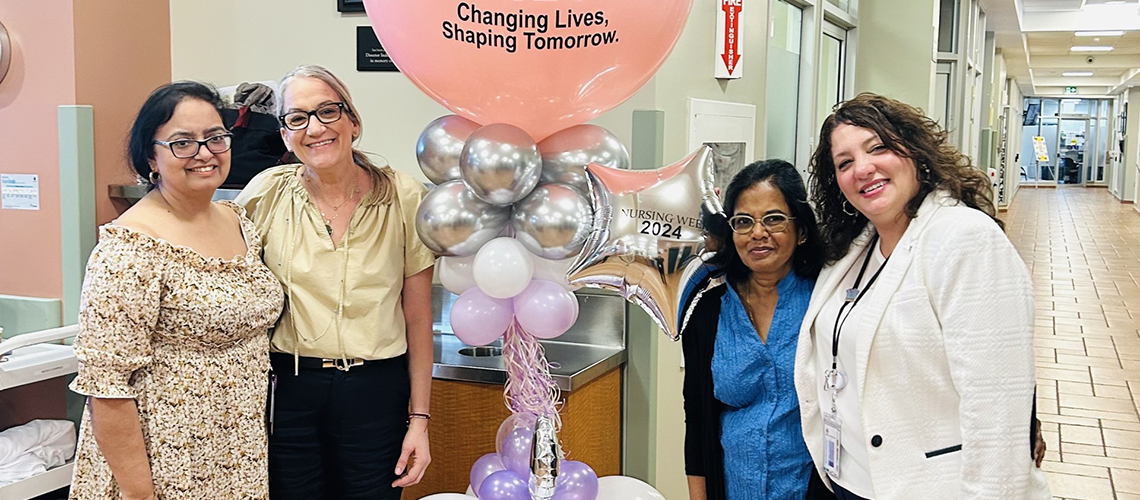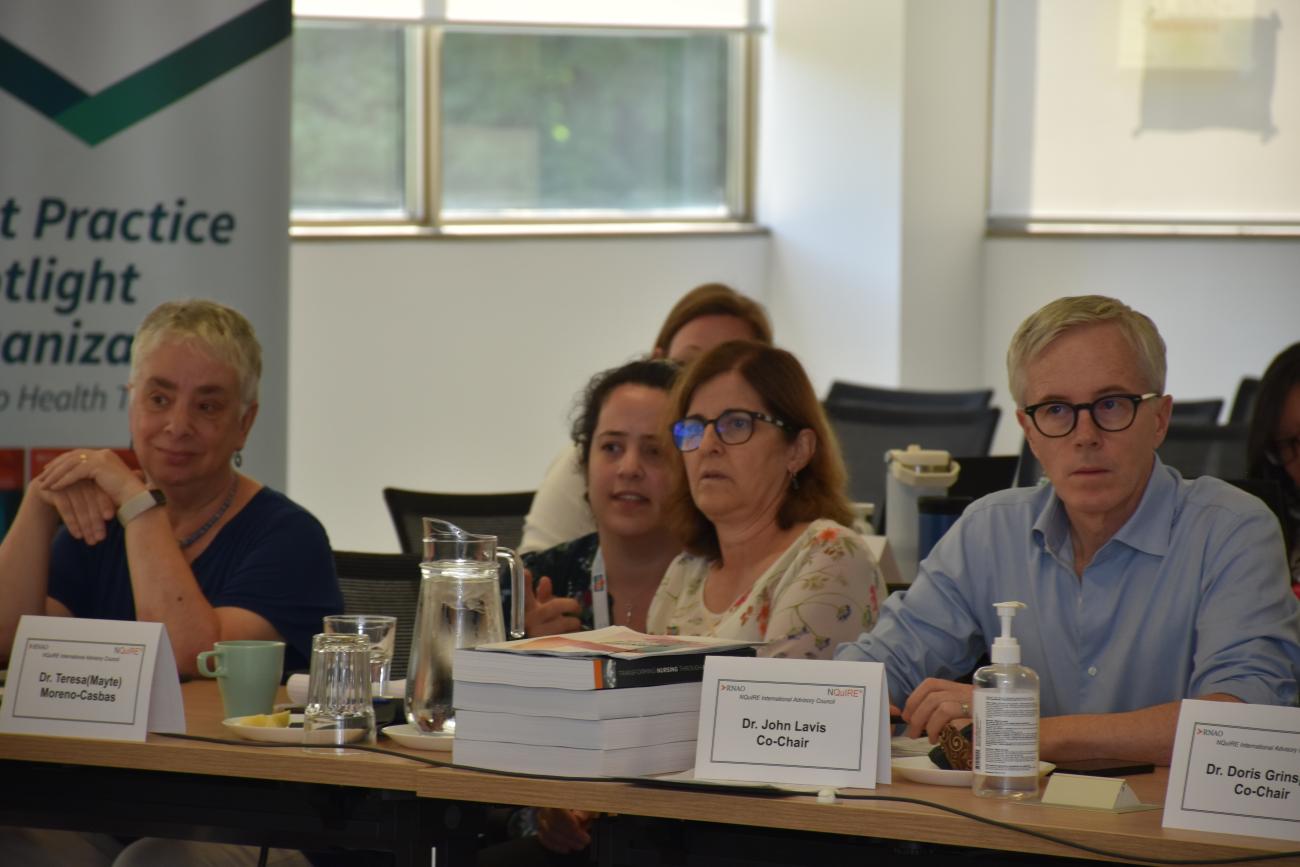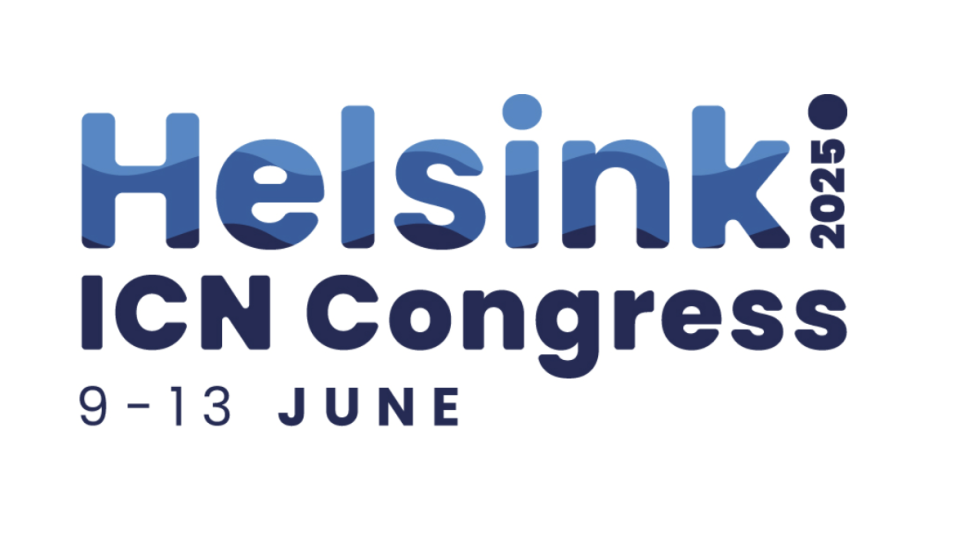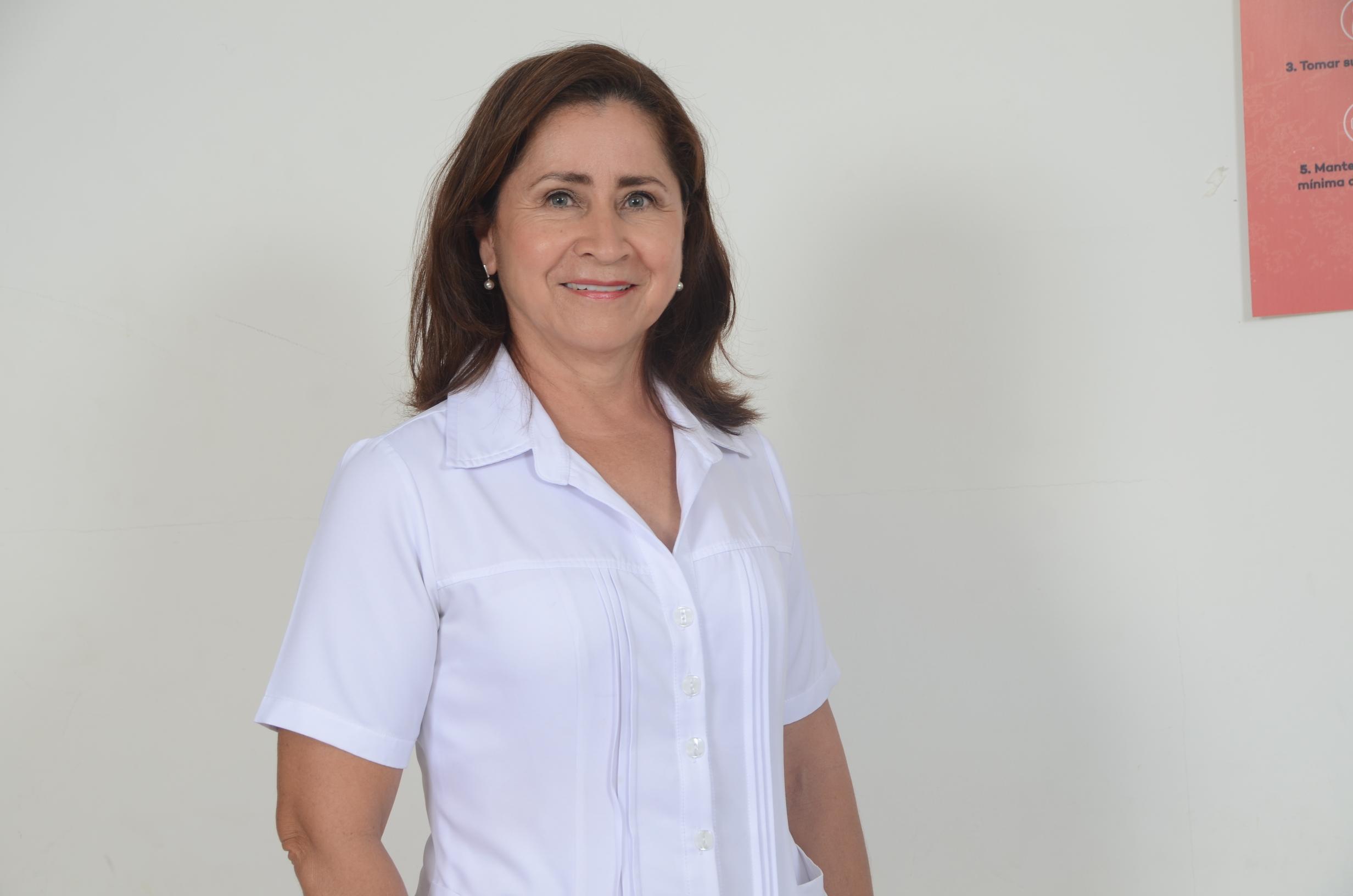
RN Nikki Mann says co-authoring a peer-reviewed article about implementing RNAO’s pain management best practice guideline (BPG) was incredibly rewarding. The director of resident services and Best Practice Spotlight Organization® (BPSO®) lead at Toronto’s Villa Colombo long-term care home knows the impact BPGs are having on her residents and adds that looking at the bigger picture for the article (published in March 2024) was crucial.
“You can do so much on the ground level (that) you know (is) effective, but you don’t recognize (the full impact of) it until you take a step back and begin looking at the data. It’s the data that speaks to you,” she says. In the case of this article, it found that implementing RNAO’s pain management BPG resulted in a decrease in residents whose pain worsened after an initial pain assessment.
Mann is a proud champion and committed member of RNAO’s network of BPSOs that have signed formal partnership agreements to implement multiple BPGs and measure their impact. As part of this agreement, BPSOs are required to complete one peer-reviewed journal article during their pre-designate contract and an additional article once they have graduated and become a full-fledged designate. For Villa Colombo, which graduated in 2022, this was their second published article. Mann said that her organization was excited to have the recognition. “Being able to showcase that with frontline staff, with family members, with residents, with our board of governors and others. Being able to share the accomplishment was significant.”
The idea, says International Affairs and Best Practice Guideline (IABPG) director Michelle Rey, is for BPSOs to continue learning and utilizing guidelines in their work. She notes that these articles are a source of pride for BPSOs. “It documents a journey. It’s part of that public visibility for the program,” she says. In many cases, like that of Mann, RNAO collaborates with BPSO leads and other researchers to publish articles, which Rey says adds to the value of the program.
As co-chair for RNAO’s International Advisory Council (IAC), Dr. John Lavis has seen firsthand the meticulous work that goes into BPGs. The IAC provides advice on the development, implementation and evaluation of guidelines. It also contributes to data analysis and recommends strategies to build and share knowledge.
My goal is to ensure that many more government policymakers, system and organizational leaders, and citizen partners learn about RNAO’s work.
Lavis – who is director of the McMaster Health Forum and director of the World Health Organization Collaborating Centre for Evidence-Informed Policy – chairs the council alongside RNAO CEO and BPG program founder Dr. Doris Grinspun. Other members of IAC are experts in data, quality improvement and performance measurement who hail from health and academic organizations in North America and abroad, including Spain and France.
Lavis says RNAO’s work is “widely acknowledged to be world leading,” and he agreed to be IAC co-chair “…because it provided a chance to learn from and spur ongoing improvements to a…platform for supporting practice and policy changes based on the best available evidence.”
“My goal is to ensure that many more government policymakers, system and organizational leaders, and citizen partners learn about RNAO’s work,” he says. While other organizations have created best practices, RNAO is unique for its three-pillar approach of guideline development, implementation and evaluation. “Just the ecosystem of practice supports alone is extraordinary, ranging as it does from best practice guidelines to implementation supports…to monitoring and evaluation,” he notes.
Peer-reviewed journal articles and presentations at local, national and international conferences are vital to help share the impact of BPGs, Lavis says. “You have to get out there and tell your story. RNAO and BPSO leaders have amazing stories to tell and amazingly rich data to back them up.”
On a regular basis, Grinspun, BPG team members and BPSO leads are taking advantage of the many opportunities to share those stories at conferences in Canada and abroad. When the International Council of Nurses (ICN) Congress was held in Montreal in 2023, RNAO’s presence was felt.
“RNAO’s conference booth was bursting at the seams,” Grinspun said in her RNJ column about the event. “It seemed like the entire international community of nurses wanted to be at our booth. It was so energizing to engage with colleagues who knew about RNAO’s work and others encountering us for the first time.” A variety of poster presentations focused on various topics were accepted for the conference. Several concurrent sessions were also hosted by RNAO, including sessions on anti-Black racism in nursing, the use of artificial intelligence in falls prevention and chronic pain.
RNAO also held its own BPSO event following the congress to share information about the program and offer BPSOs an opportunity to gather and collaborate.
“The impact the guidelines are having…is phenomenal. It’s just so rewarding to know as nurses…as organizations, as health-care agencies…we can all support each other and collaborate,” says Mann.
The 2025 ICN Congress will take place in Helsinki, Finland, in June and will feature 20 poster presentations from RNAO and its BPSOs in Ontario and abroad. These will include topics such as person- and family-centred care, the toxic drug crisis and nursing student leadership. Another BPSO-specific event will be hosted by RNAO at the same time, continuing the tradition of coming together at ICN to share knowledge.
Maribel Esparza is the BPSO lead at Clinica FOSCAL in Colombia. She too knows the impact BPGs are having globally. Publishing journal articles “serves as a model for institutions that are just starting the guideline implementation process or considering joining the program,” she says. “It is important to write articles and make presentations…to motivate other institutions and nursing professionals to implement evidence-based practices.”
Esparza has also served as a BPSO trainer for other organizations in Latin America and Mexico. She recently contributed to the development and delivery of a BPG-specific nursing diploma course at Bogotá’s Juan N. Corpas University. The course includes RNAO BPGs and offers strategies for implementing them into nursing practice. And she’s planning the 2025 FOSCAL Nursing Congress, which will focus on the palliative care BPG. This is an important topic, she says, and “…its implementation will contribute significantly to nursing (in Colombia).”
Thanks to the work of RNAO and its BPSOs, BPGs have become a sought-after and reputable resource for researchers, educators, employers and more, Lavis says. “It’s game-changing work that deserves as wide an audience as possible.”
Inspiring publications that advance evidence-based practice
For a curated collection of journal article citations showcasing the real-world impact of the BPG program and its BPSOs, read this issue’s New ‘Open Library’ a repository of searchable best practice resources. The library supports researchers, health providers and nursing students with an interest in advancing evidence-based practice. It is the first phase of an initiative aimed at building research capacity and inspiring publications.




